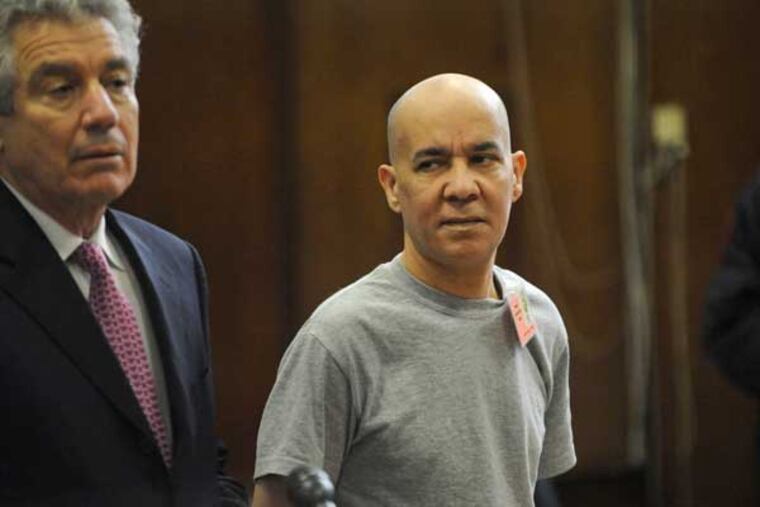Burlco man to stand trial in boy's death
Pedro Hernandez of Maple Shade was charged in the 1979 strangling of Etan Patz.

NEW YORK - A Maple Shade man charged with murder decades after one of the nation's most infamous child disappearances can be brought to trial, a judge ruled Wednesday, turning down the man's claim that the evidence was too thin to proceed.
In a case that hinges on a disputed confession, the judge said there was enough evidence to sustain the charges against Pedro Hernandez. He is accused of killing 6-year-old Etan Patz, last seen walking to his Manhattan school bus stop in 1979.
The ruling propels the case toward a trial that would likely revolve around whether Hernandez's confession amounts to a mentally ill man's imaginings, as his defense says.
"We're prepared to move forward to trial and be able to show the people of the city of New York that Pedro Hernandez had nothing to do with whatever happened to Etan Patz back in 1979," defense lawyer Harvey Fishbein said after court.
Etan's disappearance, which helped propel a movement to publicize the cases of missing children, vexed investigators through decades of fizzled leads and inconclusive findings.
Authorities say they have finally found the culprit in Hernandez, who confessed after his arrest last year at his South Jersey home and allegedly made incriminating remarks to acquaintances years before.
But his lawyer has said that Hernandez is schizophrenic and bipolar, and that his admission is false, peppered with questionable claims and made after almost seven hours of police questioning.
"No evidence or witnesses have been found corroborating any of the few facts" in Hernandez's confession, Fishbein wrote last month in papers arguing that the case should be dismissed.
The Manhattan District Attorney's Office has said that there is enough proof to sustain the case, that Hernandez willingly talked with investigators, and that prosecutors do not believe his confession was the product of psychiatric problems.
Before his arrest, Hernandez was never hospitalized or treated for any major psychiatric condition, Assistant District Attorney Penelope Brady wrote in court papers this winter.
Under New York law, a person can be convicted based only on a confession if there is additional evidence that a crime was committed.
Manhattan State Supreme Court Justice Maxwell Wiley said in a written ruling that the evidence against Hernandez was "legally sufficient to support the charges."
The judge ordered a hearing on whether Hernandez's statements could be used at trial. Such hearings are fairly common.
Hernandez, 52, sat stock-still during a brief court appearance, as his wife and daughter and a friend watched from the audience. The women hugged tearfully in the courtroom hallway afterward and declined to speak with reporters. Prosecutors had no immediate comment.
Etan vanished on May 25, 1979; the anniversary later was named National Missing Children's Day in his memory. He became one of the first vanished children pictured on a milk carton.
Hernandez, 52, was arrested last May after police got a tip that he had told people years before that he had killed a child in New York.
Hernandez then told authorities he'd seen Etan at the bus stop, offered the boy a soda to entice him into a corner store where he worked, and choked the boy in the basement. Hernandez said he tossed Etan's book bag behind a basement freezer, put the boy's limp body in a box, and left the box with some trash about a block away.
Hernandez's lawyer has argued that some of the details show the confession is dubious: Nobody else reported seeing Etan actually at the bus stop, and the book bag was never found, despite an extensive search for clues that likely would have included the shop basement, Fishbein has said.
Hernandez is due back in court July 31.